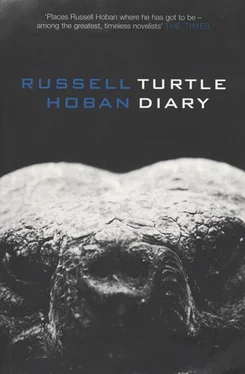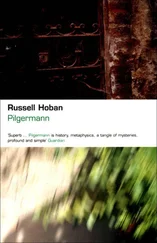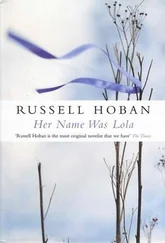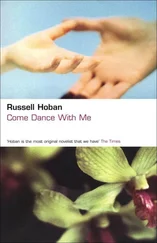Russell Hoban - Turtle Diary
Здесь есть возможность читать онлайн «Russell Hoban - Turtle Diary» весь текст электронной книги совершенно бесплатно (целиком полную версию без сокращений). В некоторых случаях можно слушать аудио, скачать через торрент в формате fb2 и присутствует краткое содержание. Год выпуска: 2000, Издательство: Bloomsbury Publishing PLC, Жанр: Современная проза, на английском языке. Описание произведения, (предисловие) а так же отзывы посетителей доступны на портале библиотеки ЛибКат.
- Название:Turtle Diary
- Автор:
- Издательство:Bloomsbury Publishing PLC
- Жанр:
- Год:2000
- ISBN:нет данных
- Рейтинг книги:3 / 5. Голосов: 1
-
Избранное:Добавить в избранное
- Отзывы:
-
Ваша оценка:
- 60
- 1
- 2
- 3
- 4
- 5
Turtle Diary: краткое содержание, описание и аннотация
Предлагаем к чтению аннотацию, описание, краткое содержание или предисловие (зависит от того, что написал сам автор книги «Turtle Diary»). Если вы не нашли необходимую информацию о книге — напишите в комментариях, мы постараемся отыскать её.
Turtle Diary — читать онлайн бесплатно полную книгу (весь текст) целиком
Ниже представлен текст книги, разбитый по страницам. Система сохранения места последней прочитанной страницы, позволяет с удобством читать онлайн бесплатно книгу «Turtle Diary», без необходимости каждый раз заново искать на чём Вы остановились. Поставьте закладку, и сможете в любой момент перейти на страницу, на которой закончили чтение.
Интервал:
Закладка:
A confusion of fixed and flashing lights confronts the navigator, that’s what the sign on the Port Liberty model says. That’s how life seems to me sometimes. At other times it’s a confusion of fixed and flashing darknesses. More darknesses than lights I think. Port Liberty doesn’t exist and Pangaea having separated will never again come together. Unless he is already doomed, Fortune favours the man who keeps his nerve. Beowulf. Of course it’s easy to keep your nerve when you’ve got a grip that can tear the arm right off a sea monster. Am I doomed? Flashing darkness is pretty much the same as flashing light really. Fear isn’t at all the same as courage but after a certain point perhaps being afraid of everything is the same as being afraid of nothing. It doesn’t feel that way now but then I haven’t reached that point yet. If the fool would persist in his folly he would become wise, said Blake. If the coward persists in his cowardice does he become brave?
Maybe I could stop smoking, that would give me more years to get brave in. It’s getting to my legs, they seize up on me now whenever I climb stairs. When I stopped smoking for nine days not long ago I could run right up the stairs in the Underground like other people.
I’ve met several other men who were divorced and didn’t see their children any more because their wives had left the country. It didn’t seem to bother them all that much. I feel as if it’ll kill me but then when I was with the children I felt that being married to Dora was taking my life away. Maybe I’m just one of those people so accustomed to being miserable that they use the material of any situation to fuel their misery.
Sometimes I think it must help to have a conviction in one’s birthplace, to feel a significance in having been born in one place rather than another. Perhaps if more of my childhood had been spent in Polperro I’d feel stronger about it. My father retired there to paint, met my mother in the teashop where she worked, married her and died two years later. I was one year old when Mother and I came to London and I still can’t see the point of my having been born in Polperro. I’ve never been back there.
For some time now on bad days I’ve been falling back on a news item I read last month. An important witness in the current American government scandal was said to be desperately afraid of going to prison because he’s so good-looking that all the homosexuals will be after him. I have many problems but not that one.
16 Neaera H
The one beach pebble I have from my childhood is the one I call my Caister two-stone. It’s an amalgam of two different kinds of material, half grey and half brown.
My father took me to the Caister Lifeboat Station once. There was no boathouse like the one that’s there now, the boat, the Charles Burton, was on skeets on the sand. It had saved seven lives that year. One of the vessels the Caister men had helped was the Corn Rig of Buckie. ‘Rendered assistance’ was the expression used. ‘We rendered assistance to the Corn Rig of Buckie,’ said the brown-faced man my father was talking to. It had a gallant sound like a line in a narrative poem. My father said to me afterwards that Caister men never turn back. ‘They may die, they may drown, but they never turn back,’ he said wonderingly and shook his head. His words and the words of the other man have stayed together in my mind:
We rendered assistance to the Corn Rig of Buckie,
We may die, we may drown, but we never turn back.
As if to reprove the Caister men for their obstinate courage the Royal National Lifeboat Institution took away their boat and shut down the station several years ago, economizing the service. The Caister men of course got themselves another boat and carry on unofficially. The stone is on my desk and I handle it often.
This preoccupation with the turtles, this project that insists on forming itself in my mind, wants to be seen in its proper light. I have got to try to understand it a little better. Not perhaps entirely, I’m not given to examining too closely the actions that really matter. I can deliberate long over a dinner-party invitation, considering carefully every aspect of the occasion and what it will cost me in time and equilibrium but when the venture is crucial I simply trust to luck and plunge into the dark. And even now at the age of forty-three I still can’t say whether I’ve been lucky or unlucky. Sometimes it looks one way and sometimes the other.
On reflection I really don’t want to understand it better. It may be silly and wrong and useless, it may be anything at all but it seems to be a thing that I have to do before I can do whatever comes after it. That it seems to involve other people is inevitable, everything does in one way or another.
I went to the bookshop. The man and I said hello to each other and I went to the Natural History section where I turned the pages of books without looking at them. My heart was pounding somewhat and I found myself mentally rehearsing what I would say. I always do that, I can’t help it. Even when I go to the Post Office I say in my mind before I reach the window, ‘Twenty stamps at 3p, please.’ Then I say it aloud at the window. ‘I wonder if you too are thinking about the turtles?’ I would say. Or ‘Perhaps we had better discuss the turtles?’ I cursed him for not being man enough to speak up and broach the subject when it loomed so large and visible between us.
I became aware that he was standing near me emanating silence and in my mind I cursed him again. ‘The turtles …’ I blurted out.
‘The turtles …’ he mumbled at the same time. We both laughed.
‘It’s almost lunch-time,’ he said. ‘Perhaps we could talk about it then. Can you wait a few minutes?’
I nodded and went to the Poetry section, opened A. E. Housman at random and read:
The world is round, so travellers tell,
And straight though reach the track,
Trudge on, trudge on, ‘twill all be well,
The way will guide one back.
But ere the circle homeward hies
Far, far must it remove:
White in the moon the long road lies
That leads me from my love.
It was James Haylett of Caister who first said that Caister men never turn back. He was a lifeboatman for fifty-nine years, and at the age of seventy-eight he went into the surf and pulled out his son-in-law and one of his grandsons from under the lifeboat Beauchamp the night it capsized in November, 1901. At the inquiry it was suggested that the Beauchamp, which had gone to the rescue of a Lowestoft fishing-smack on the Barber Sands, might have turned back because of the force of the gale and the heavy seas. That was when James Haylett said, ‘Caister men never turn back.’ Nine of the lifeboat crew were lost including two sons and a grandson of James Haylett. The fishing-smack had got herself off the sands, anchored safely in deep water, and knew nothing of the disaster until later. Rescuers and those to be rescued don’t always come back together.
Lunch-time came. We went to a little place near by where the take-away queue waited partly in the street and partly at the counter. There were no empty booths so we shared one with two fresh-faced young executives eating eggs and sausages and grease.
‘The brief is really quite clear,’ said the one next to me.
‘We’ve put in the think time,’ said the one next to the bookshop man. ‘We’re ready to move on it.’
‘And we’d jolly well better do it soon,’ said mine. ‘Those chaps in the City can’t be kept dangling indefinitely. Once we’ve separated the sheep from the goats we’ve got to make our bid.’
‘Precisely what I said in my report,’ said the other as he wiped up some grease with a bit of Mother’s Pride sliced bread. ‘When they get back from Stuttgart I want to see some action.’
Читать дальшеИнтервал:
Закладка:
Похожие книги на «Turtle Diary»
Представляем Вашему вниманию похожие книги на «Turtle Diary» списком для выбора. Мы отобрали схожую по названию и смыслу литературу в надежде предоставить читателям больше вариантов отыскать новые, интересные, ещё непрочитанные произведения.
Обсуждение, отзывы о книге «Turtle Diary» и просто собственные мнения читателей. Оставьте ваши комментарии, напишите, что Вы думаете о произведении, его смысле или главных героях. Укажите что конкретно понравилось, а что нет, и почему Вы так считаете.












